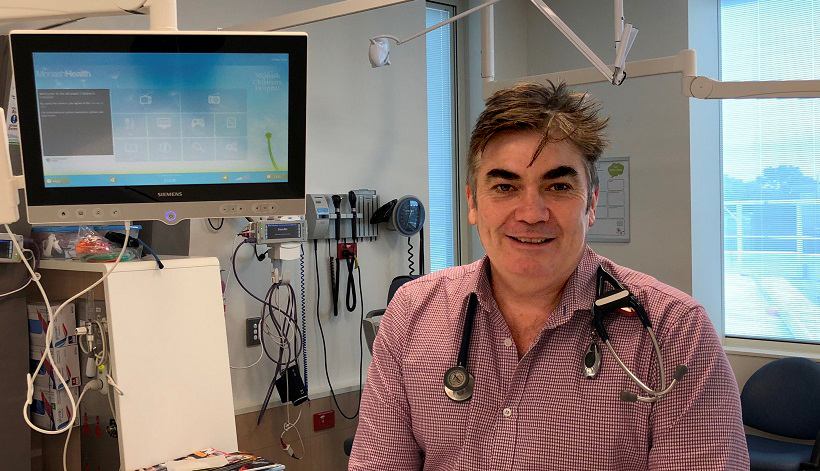Rare Cancers Awareness Month: The tribulations of Trials for rare cancers

June is Rare Cancers Awareness Month, raising awareness and enhancing understanding around rare cancers and how they affect people around the globe. It is also an opportunity to outline the challenges faced within research sector to ensure that rare cancers can be properly treated.
All paediatric cancers are classed as rare, but there are even ‘rare’ paediatric cancers, classed as less common than the likes of leukaemia and sarcoma. Rhabdoid tumours are one such rare children’s cancer. Developing in the kidneys, fewer than ten Australian children are diagnosed with rhabdoid tumours annually – a small portion of the 950+ children who are diagnosed with cancer every year.
Symptoms for rhabdoid tumours located in the brain include headaches, nausea, irritability, coordination issues and developmental delays, while treatment often includes surgery, chemotherapy, and sometimes radiation therapy or stem cell transplants.
A Phase II Study of Panobinostat in Paediatric, Adolescent and Young Adult Patients with Solid Tumours Including Osteosarcoma, Malignant Rhabdoid Tumour/Atypical Teratoid Rhabdoid Tumours and Neuroblastoma, or The NORTH Trial for short, is one specific clinical trial supported by The Kids' Cancer Project that endeavoured to find effective treatment for rhabdoid tumours.
The NORTH Trial sought to determine the efficacy of panobinostat in treating several solid tumours, including neuroblastoma, osteosarcoma and rhabdoids – ultimately preventing relapse of childhood cancer patients. Panobinostat effectively restarts cancer-fighting genes within tumour cells, inhibiting cancer growth and in some cases killing a cancer cell completely.
A monthly donation to The Kids’ Cancer Project allows you to build long-term impact for kids with cancer.
When you commit to survival with a monthly gift of just $15, you will ensure we can continue to fund bold clinical trials for rare cancers.
Sign up today.
The NORTH Trial was the first example of panobinostat being utilised to treat paediatric cancers in Australia and New Zealand. Of the 25 patients enrolled within the study, 14 of those were diagnosed with rhabdoid tumours.
A lot of occurrences throughout the study speak to the difficulty of running successful paediatric cancer clinical trials. The company that originally produced panobinostat sold the rights to develop the drug to a rival biotech company, which then reduced support and production. This unfortunately led to the closure of the osteosarcoma and neuroblastoma portions of The NORTH Trial.
While there were positive shifts observed in patient stability and disease monitoring and a lot of collated data regarding toxicity and dose response will help to support other panobinostat trials in future, challenges regarding drug supply security and recruitment of patients for the trials speak to the issues faced by rare cancer researchers, particularly those involved within paediatrics.
It’s why this Rare Cancers Awareness Month, we’re discussing the challenges our researchers face every single day.
The researchers that helped facilitate The NORTH Trial finalised their observations of rhabdoid tumour patients earlier this year. The findings made are being utilised to identify biomarkers that speak to the effectiveness of panobinostat, as well as being compared to a historical control group. The findings will be published in the coming months.
A monthly donation to The Kids’ Cancer Project allows you to build long-term impact for kids with cancer.
When you commit to survival with a monthly gift of just $15, you will ensure we can continue to fund bold clinical trials for rare cancers.
Sign up today.

